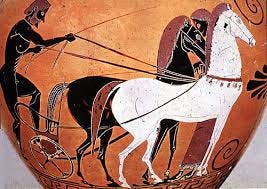Francis Fukuyama writes in Identity that most modern economic theories typically have a dichotomous view of the soul—there’s desire (short term thinking; marshmallow now) and reason (long-term, calculative thinking; more marshmallows later).
Plato, by contrast, had a tripartite account. The soul is constituted not just by instinct and reason, but also b…
Keep reading with a 7-day free trial
Subscribe to What Is Called Thinking? to keep reading this post and get 7 days of free access to the full post archives.



